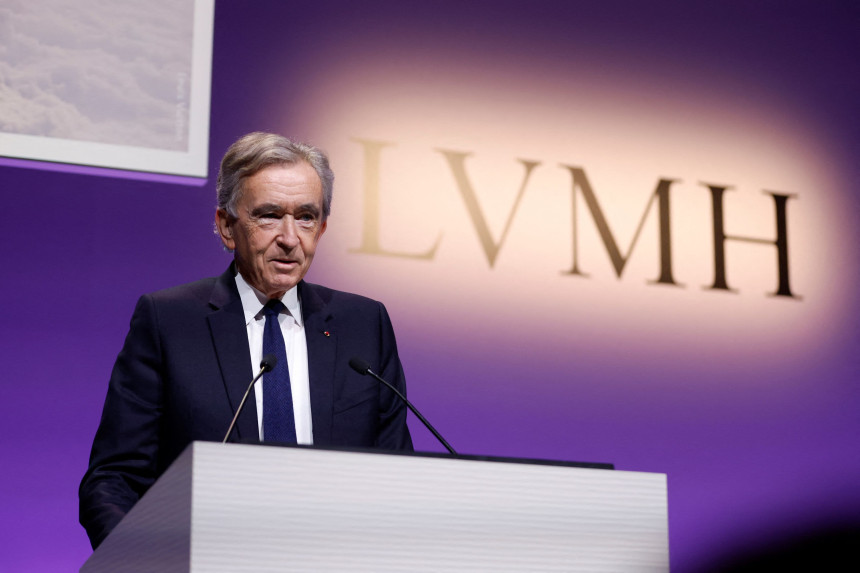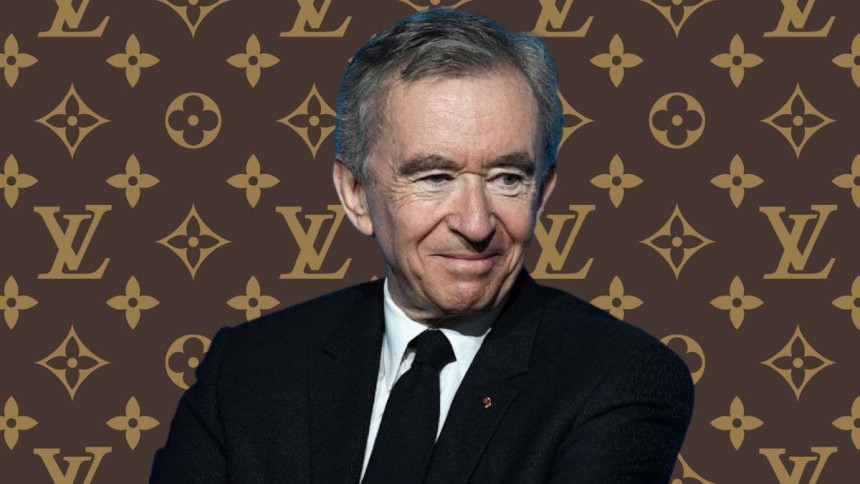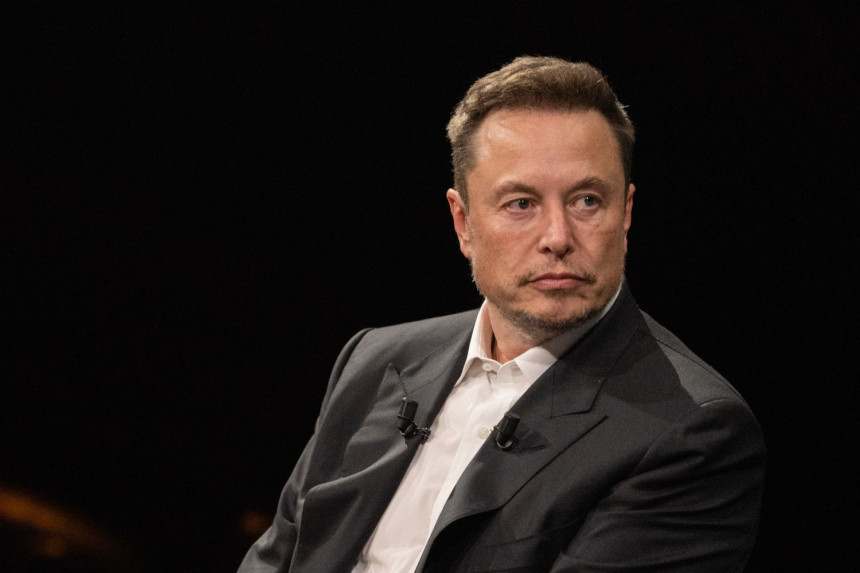
Bernard Arnault & Family Net Worth
Bernard Arnault was born on March 5, 1949, in Roubaix, France. He came from a wealthy background, with his father, Jean Léon Arnault, owning a successful civil engineering company, Ferret-Savinel. Arnault’s mother, Marie-Josèphe Savinel, had a fascination for Dior, which later influenced Bernard’s business ventures. Arnault showed an early aptitude for business and excelled in academics, particularly in mathematics and science. He graduated from the prestigious École Polytechnique in 1971, where he studied engineering.
Early Career and First Ventures
After graduation, Arnault joined his father's company and played a pivotal role in its direction. Recognizing the potential in real estate, he convinced his father to shift the company’s focus to property development. The firm was renamed Ferinel and became known for building holiday accommodations. This venture was Arnault's first taste of transforming and scaling businesses, foreshadowing his future successes.
Entry into the Luxury Goods Market
Arnault's entry into the luxury goods market began in 1984 when he acquired Financière Agache, a struggling textile company. The acquisition was strategic; Financière Agache owned Christian Dior and Le Bon Marché, a famous Parisian department store. Arnault’s vision was to rejuvenate Dior, an iconic but then-faltering brand, and use it as a cornerstone for a luxury empire.
Arnault's approach was bold and relentless. He restructured the company, sold off non-core assets, and focused on profitability and brand prestige. His efforts paid off, and Dior soon regained its stature as a leading luxury brand.
Formation of LVMH
Arnault’s most significant move came in 1987 when he orchestrated a merger between Louis Vuitton, a renowned luxury luggage maker, and Moët Hennessy, a prominent champagne and cognac producer. This merger formed LVMH (Moët Hennessy Louis Vuitton), a conglomerate that would become the world's largest luxury goods company.
Arnault’s strategy for LVMH was clear: acquire prestigious brands, preserve their heritage, and enhance their market value through strategic management and marketing. Under his leadership, LVMH expanded rapidly, acquiring a plethora of high-end brands across various sectors, including fashion, cosmetics, jewelry, and beverages.
Expansion and Acquisitions
Fashion and Leather Goods: Some of the most notable acquisitions under Arnault’s leadership include Givenchy, Fendi, Marc Jacobs, and Kenzo. Each acquisition was carefully planned to enhance LVMH’s portfolio and market reach.
Wines and Spirits: LVMH’s portfolio in this sector includes renowned names like Dom Pérignon, Veuve Clicquot, and Hennessy. These acquisitions solidified LVMH’s dominance in the luxury beverage market.
Perfumes and Cosmetics: LVMH also made significant strides in the beauty industry with brands like Guerlain, Benefit Cosmetics, and Fresh.
Watches and Jewelry: The acquisitions of TAG Heuer, Bulgari, and Hublot positioned LVMH as a major player in the luxury watch and jewelry market.
Arnault’s acquisition strategy was not just about buying brands but nurturing them to maximize their potential. He focused on maintaining the unique identity and craftsmanship of each brand while leveraging LVMH’s extensive resources for global expansion and marketing.
Leadership Style and Vision
Bernard Arnault is known for his meticulous attention to detail, strategic foresight, and relentless pursuit of excellence. His leadership style is often described as visionary and demanding. He is deeply involved in the creative and strategic aspects of his brands, ensuring they uphold the highest standards of luxury and innovation.
Arnault’s vision extends beyond business. He is a patron of the arts and a fervent supporter of cultural initiatives. In 2014, he inaugurated the Fondation Louis Vuitton, a contemporary art museum in Paris designed by architect Frank Gehry. The foundation reflects Arnault’s commitment to art, culture, and innovation, mirroring the values he instills in his business ventures.
The Arnault Family’s Involvement
The Arnault family plays a significant role in the LVMH empire. Bernard’s children are actively involved in various aspects of the business:
Delphine Arnault: She serves as the executive vice president of Louis Vuitton and is a member of LVMH's executive committee. Delphine has been instrumental in shaping the brand’s creative direction and strategic growth.
Antoine Arnault: He oversees communications and image at LVMH and is the CEO of Berluti, a luxury menswear brand. Antoine’s leadership has been pivotal in enhancing LVMH’s brand image and public relations.
Alexandre Arnault: Formerly the CEO of Rimowa, Alexandre is now an executive at Tiffany & Co., focusing on digital innovation and product development.
Frédéric Arnault: He is the CEO of TAG Heuer, where he has been leading efforts to modernize the brand and expand its market presence.
Jean Arnault: The youngest, Jean, has been involved in product development at Louis Vuitton, bringing fresh perspectives and innovation to the brand.
Challenges and Controversies
Despite the immense success, Arnault and LVMH have faced challenges and controversies. Competitive tensions with other luxury conglomerates, economic downturns, and changing market dynamics have tested Arnault’s leadership. Additionally, LVMH’s aggressive acquisition tactics have sometimes been criticized as hostile takeovers.
One notable controversy was the legal battle with Hermès. In 2010, LVMH covertly acquired a significant stake in Hermès, leading to a prolonged legal dispute. The Arnault family eventually agreed to relinquish their shares, but the incident highlighted the aggressive and sometimes contentious nature of Arnault’s acquisition strategy.
Philanthropy and Legacy
Beyond business, Bernard Arnault is a prominent philanthropist. The Arnault family has donated significant sums to various causes, particularly in the arts and culture. The Fondation Louis Vuitton is a testament to their commitment to promoting contemporary art and culture.
In 2019, following the devastating fire at Notre-Dame Cathedral in Paris, the Arnault family pledged 200 million euros for its reconstruction, showcasing their dedication to preserving cultural heritage.

Net Worth and Wealth Management
As of 2024, Bernard Arnault & family’s net worth is estimated to be over $200 billion, making him one of the richest individuals in the world. This immense wealth is managed through various channels, including private investments and real estate holdings.
Arnault’s wealth is not just a product of LVMH’s success but also strategic investments in other sectors. The family has significant real estate holdings, including luxurious properties in Paris, Bordeaux, and other prestigious locations. These investments are part of a broader strategy to diversify their wealth and ensure long-term financial stability.
The Future of LVMH and the Arnault Legacy
Looking ahead, the future of LVMH appears robust. The company continues to expand its portfolio, innovate in luxury retail, and explore new markets. The involvement of Arnault’s children in the business ensures continuity and fresh perspectives, positioning LVMH for sustained success.
Bernard Arnault’s legacy is one of visionary leadership, relentless pursuit of excellence, and a profound impact on the luxury goods industry. He has transformed LVMH into a global powerhouse, setting benchmarks for luxury, innovation, and brand management.
Conclusion
Bernard Arnault’s journey from a civil engineer to the world’s luxury goods titan is a remarkable story of vision, strategy, and relentless pursuit of excellence. His leadership has not only shaped LVMH into a global luxury conglomerate but also set new standards for the industry. The Arnault family’s involvement ensures that this legacy will continue, driving innovation and excellence in the luxury market for generations to come.
The story of Bernard Arnault & family is a testament to the power of vision, strategic thinking, and the enduring appeal of luxury. Their journey underscores the importance of maintaining brand heritage while embracing innovation, a balance that has defined LVMH’s unparalleled success in the global market.





